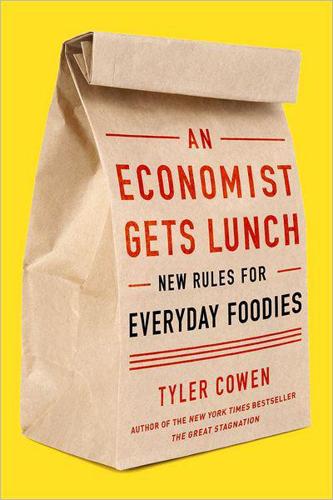
An Economist Gets Lunch: New Rules for Everyday Foodies
by
Tyler Cowen
Published 11 Apr 2012
They have to be refrigerated or frozen and they arrive battered and somewhat tasteless, unless you pay to have them flown in and handled by specialists; then we’re back to the expensive restaurants with fine raw ingredients. Raw materials are the most obvious form of capital to an everyday foodie, but the relevance of capital does not stop there. Hospital Food Bad—Casino Food Good? Another way to judge restaurants, or dining locales more generally, is to think about the cross-subsidies they enjoy or, as the case may be, fail to enjoy. “Cross-subsidy” is a technical term in economics, but it is straight- forward enough. Does a commercial establishment receive a positive or negative boost from the surrounding circumstances of its production? Some Las Vegas casinos offer good restaurants and good food to get you to gamble in their establishment; you could say that the gambling is subsidizing the food.
…
In essence the overall business plan is subsidizing the chicken with rice. The idea of the cross-subsidy applies in a broad variety of settings. In the old days, Parisian restaurants located themselves near butchers so as to receive choice cuts, entrails, and innards quickly and easily. Mexican food stalls (comedores) draw upon the cooking expertise of grandmas, honed over decades of family cooking, and they do not have to train their chefs or pay them very much. Those are all examples of cross-subsidies—the food provider is getting something important on the cheap and subsequent competition forces them to share some of those gains with happy customers.
…
By paying the markup on the drinks, certain customers make quality food cheaper and more available than it otherwise would be. They are, without really knowing it, helping out the other customers, including yours truly. Looking back in history, formerly you could take advantage of this cross-subsidy far more than is possible today. For instance nineteenth century saloons took the drinks cross-subsidy to an extreme by offering, literally, a free lunch to their customers. Once food supply became liberated from local farmers and hunters, such free lunches became common. The hope, of course, was that they would make the money back on the drinks.
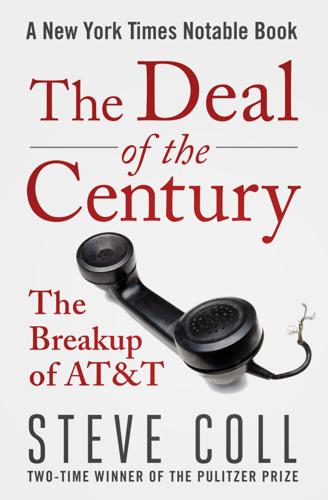
The Deal of the Century: The Breakup of AT&T
by
Steve Coll
Published 12 Jun 2017
AT&T argued then, and deButts continued to argue afterwards, that this ruling would have grave consequences for the phone system. Unlike the phone company’s response to long-distance competition, AT&T did not object to Carterfone on economic grounds. That is, it was impossible to argue seriously that ownership of phone equipment was a natural monopoly or that competition would jeopardize the system of cross-subsidies, which kept the price of basic, local phone service artificially low. Telephones were readily interchangeable. True, if Western Electric was forced to compete (for the first time in its history) with other telephone manufacturers, it would inevitably lose its monopolistic control over the equipment industry.
…
Rather, Baxter was enamored of the government’s relief theory in the case—which sought complete separation of the regulated local operating companies from relatively unregulated Western, Bell Labs, the Long Lines—because it was a flawless example of the free-market economic model Baxter believed in. Baxter argued that no one company should be able to integrate regulated and unregulated divisions of its business, because then it could use the “safe” profits from its regulated side to subsidize the prices of its unregulated products. Such “cross subsidies,” Baxter wrote, skewed the otherwise pristine mechanisms of a free-market economy. Of course, the role of subsidies in the telephone industry was so complex as to be inscrutable, and in some cases the subsidies were designed to achieve social goals such as low-cost local phone service. But Baxter believed that unfettered competition was the only efficient way to achieve such social ends.
…
*This section of the government’s case was especially complicated and confusing. The government did not try to prove that AT&T priced its competitive products below cost, as would be common in an antitrust case. Rather, Connell tried to show that ineffective FCC regulation and a historically haphazard system of internal cross subsidies allowed AT&T to set whatever prices it liked, depending on how much competition the phone company faced. The attempt to prove this required reams and reams of paper containing AT&T cost studies, FCC cost studies, government cost studies, and so on. When the pricing witnesses—mostly academic economists—were on the stand, the hallways outside Judge Greene’s courtroom were filled with dozens of boxes containing cost studies that might be referred to in testimony.

Tyler Cowen-Discover Your Inner Economist Use Incentives to Fall in Love, Survive Your Next Meeting, and Motivate Your Dentist-Plume (2008)
by
Unknown
Published 20 Sep 2008
The earlier Las Vegas 158 I DIS C0 V E R YOU R INN ERE CON 0 MIS T was the classic example of what economists call a cross-subsidy. One service-in this case gambling-cross-subsidized the production of another service, namely good food. The presence of gambling made food cheaper. Of course non-gamblers-such as myself-were the real winners. We could eat well for very little, without giving back the gains at the slot machine. We enjoyed free parking and cheap hotel rooms for similar reasons. Alas, this earlier system did not prove stable, and the cross-subsidy is now largely gone. Too many people, including town locals, ate the food, or stayed in the rooms, without gambling.
…
The resulting prices are often equal to or even higher than those for comparable food in New York City. This might seem surprising, given that Manhattan rents far exceed those in Vegas, but these high prices follow from the new relationship between food and gambling, or as the economist would say, from the new cross-subsidies. The casino compensates the restaurant every time a big gambler eats there for free. This payment boosts the demand for fine food. It is harder for everyone else to get a table, and thus prices rise. Furthermore, a "comped" gambler is more impressed by a free $150 meal than by a free $70 meal.
…
See food Dirty Dishes Parable, 13-16,26 Divine Comedy (Dante), 166 driving ability, 114, 174 Dubai,148 economics central concept of, 2 deference to experts, 115-16 perceptions of, 5-8, 185-87 principles of good economics, 7-8 purpose, 4 terminology, 6 economists idealism of, 4 people posing as, 6 perceptions of, 185-87 Ecuador, 34-35 education and cultural consumption, 50-51 and happiness, 180 and musical tastes, 69 and performance, 24-25, 86, 122-23, 125 as Signal, 80, 82 Ekman, Paul, 105 employment and incentives, 33-34, 41-45, 45-46 meetings, 42-45 perceptions of, 136 signaling in, 82 and tardiness, 36 wages, 33-34, 40-41,148-50,151 Ender's Game (Card), 28 England, 147 Enron, 167 Enter the Dragon, 81 equality, 148-50 errands, 122 ethnic restaurants, 143-47, 147-57 European charities, 192 "Every Day" (Holly), 66 Evite.com,37 exercise, 31-32,118-20,136 expectations, 37 expected utility theory, 127 external motivations, 14 eastern European cuisines, 147 Eastwood, Clint, 73 eBay, 169 The Faerie Queene (Spenser), 65 Fagone, Jason, 172 Fair Play (Landsburg), 4, 91 cooperation, 19-21, 186 "correspondence bias," 21 corruption, 17, 18, 19,221 costs fixed costs, 176, 177, 181 signaling, 80, 81-82 sunk costs, 74-76 transaction costs, 176, 181 counter-signaling, 107-11 country and western music, 69, 70 cross-subsidies, 157, 159 crying bars, 183-84 culture, 47 -77 art, 51-61 (see also main entry for art) books and reading, 61-66 commitment to, 72-77 music, 66-72, 76 and scarcities, 48, 49-51 customer satisfaction, 56 240 I Index fair trade coffee, 206-7 families, 89-92, 215-16 Faulkner, William, 62 fear, 173-74 fixed costs, 176, 177, 181 Fogel, Robert, 164-65 food, 139-62 availability of, 165 choosing food, 140-41, 142-47, 150-51 choosing restaurants, 147-50 cooking at home, 141-42, 143, 145, 150-51, 159-62 ethnic food, 143-47, 147-57 food stalls, 154-57 ingredients, 144-45, 161 in Las Vegas, 157-59 speed eating contests, 172 See also restaurants France, 147 Frank, Mark, 105 Frank, Robert, 186 French cuisine, 149-50 French impressionists, 58 Freud, Sigmund, 118, 180 Friedman, David, 4-5 friends, 179 Fryer, Roland, 24-25 "Fundamental Attribution Error," 21 group productivity, 126-27 gUides of Morocco, 39-41 guilt, 74 gym memberships, 118-20 Haiti, 148-49, 197-98 Hall, Robert, 74 The Hammer, 125-26 handgun purchase plans, 207 Hanson, Robin, 89, 93-96 happiness, 179-81 Harbaugh, Rich, 109-10 hard-to-get strategy, 83-84 Hassan, Nur Malena, 85-86 hawker centers, 154-57 Hawking, Stephen, 65, 108 heavy metal music, 69, 71-72 Hidden Order: The Economics of Everyday Life (Friedman), 4 high school seniors, 114 Holly, Buddy, 66, 67 Holocaust, 199 Homer, Winslow, 59 homosexuality, 180 Horsemen of the Esophagus (Fagone), 172 How to Read a Book (Adler), 63 "Hungarian Rhapsody #2" (Liszt), 58 Hurricane Katrina, 89, 198, 200 Hyderabad, India, 216 gambling, 93, 157-58, 159 The Game: Penetrating the Secret Society of Pickup Artists (Strauss), 83 generosity, 179 Germany, 147, 150, 151 Getty Museum, 55 gifts, 81-82,185-86,210-14 girlfriends, imaginary, 165-66 Gladwell, Malcolm, 9, 199 Golding, William, 66 gospel music, 70 Grameen Bank Project, 215 Grandma Test, 7 Greece, ancient, 51, 117 greed, 167-69 identity, 67-69, 74, 76, 90 immigrants and immigration, 148, 149, 152,153 incentives, 11-29,31-46 and altruism, 187 applying parables, 22-29 and beliefs, 122 and capitalism, 46 Car Salesman Parable, 16, 22, 26, 45 as central concept of economics, 2 and context, 16-22 and control, 31-33, 44 and cooperation, 19-21 and cultural consumption, 48 and decision making, 10 Index difficulty of, 45-46 Dirty Dishes Parable, 13-16, 26 and eating good food, 139 external incentives, 32 intrinsic incentives, 45 and invitation responses, 37-38 and liberty, 4 and motivation, 2, 32, 33 Parking Tickets Parable, 16-22,33,45 penalties, 36-37 and performance, 38-41 and punctuality, 34-37 in relationships, 85, 178 for RSVPs, 37-38 self-management of, 51 in the workplace, 33-34, 41-45, 45-46 and world views, 117 India, 148, 187-92, 198 Indian cuisine, 145-48, 150, 154-55, 201-2 inequality, 148-50 infant mortality, 198-99 influenza scenario, 128-29 insiders, 44 insurance, 89-90, 134-36, 168 integrity, 180 interest, 52-53 Internet, 182 investments, 91, 92 invitations, 37-38 Iraq, 75 Jenkins, Jerrold, 65 Johnson, Samuel, 63 Journal of General Internal Medicine, 128 Joyce, James, 64 Jurassic Park, 58 Kahneman, Daniel, 179 Katrina, 89, 198, 200 Kellogg Foundation, 205 kidnappers and kidnapping, 167-68 Kiva.org, 217 Klein, Erica, 175 I 241 Kolkaata.
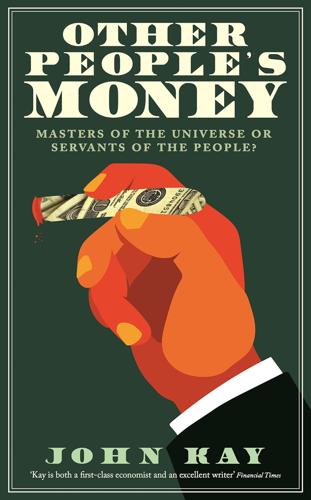
Other People's Money: Masters of the Universe or Servants of the People?
by
John Kay
Published 2 Sep 2015
Can it really be the case that the industry is not, in fact, exceptionally profitable? Conglomerate banks take the view that their retail operations are relatively unrewarding. But conglomeration permits – even encourages – cross-subsidy between activities. When competing groups are jostling for overall control of the enterprise, such cross-subsidy will tend to favour the group that is, for the moment, in charge. There have been substantial cross-subsidies from the retail division to the trading operations of financial conglomerates – of such magnitude, in fact, that it is difficult for these trading operations to compete effectively without the support of retail banking.
…
This is the thoroughly unsatisfactory experience of Stamp Duty, the established tax on equity transactions in the UK, which in practice bears only on long-term investors. A preferable strategy is to ‘starve the beast’: to adopt measures of structural reform of the finance industry that will reduce the amount of capital available to support trading activities and eliminate cross-subsidy to these activities. What is proposed here is a radically changed regulatory approach. It is trite but true to say that what we need is not more regulation but better regulation. But this demands a different regulatory philosophy rather than better regulators. It is pointless to suggest that the solution is to appoint regulators with the foresight of Nostradamus, the detective skills of Sherlock Holmes and the political insight of Machiavelli, as well as the patience of Job and the hide of a rhinoceros.
…
The overriding objectives of structural reform of the finance industry are to reduce complexity, lower costs, enhance stability and facilitate the flow of information between savers and borrowers. These outcomes should be achieved through a mixture of regulatory action and market forces. Regulation should be focused on structural remedies whose implementation requires only limited use of judgement – rules that can be monitored by box-tickers. The elimination of cross-subsidies across activities and of government subsidies and guarantees would allow the market to drive further reform. The financial conglomerates that dominate finance today are, to households and businesses in the real economy, largely indistinguishable from each other. A saver who is looking to place deposits or find a home for long-term investments, a company establishing a corporate banking relationship, a personal or corporate borrower seeking funds, would be hard pressed to identify any differences between J.P.
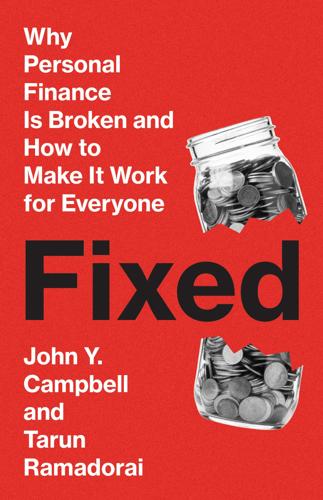
Fixed: Why Personal Finance is Broken and How to Make it Work for Everyone
by
John Y. Campbell
and
Tarun Ramadorai
Published 25 Jul 2025
This problem was highlighted for the United Kingdom in the early 2000s by a British government committee chaired by David Miles. See David Miles, The UK Mortgage Market: Taking a Longer-Term View, HM Treasury, 2004. In a more recent study, Jack Fisher, Lu Liu, Alessandro Gavazza, Tarun Ramadorai, and Jagdish Tripathy, “Refinancing cross-subsidies in the mortgage market,” Journal of Financial Economics 158 (2024): 103876, find that a substantial proportion of the overall UK mortgage stock (30% in 2015) pays punitive “reset rates” that are incurred when borrowers fail to refinance promptly. 41. This strategy of delaying refinancing may appear to be an attempt to time the bond market—something we have warned against—but it is distinct because it is based on knowledge that interest rates are volatile, not a belief that one can predict the direction of interest rate movements.
…
This paper presents a useful but intimidating formula which solves an approximation to the refinancing problem households actually face. 47. Several recent papers have attempted to compute the size of these regressive transfers across income groups. See, for example, Fisher et al., “Refinancing cross-subsidies in the mortgage market”; and David Berger, Konstantin Milbradt, Fabrice Tourre, and Joseph Vavra, “Mortgage prepayment and path-dependent effects of monetary policy,” American Economic Review 111 (2021): 2829–2878. 48. Julia Fonseca and Lu Liu, “Mortgage lock-in, mobility, and labor reallocation,” Journal of Finance 79 (2024): 3729–3772. 49.
…
How to Use Everyday Ingenuity to Solve Problems Big and Small (Harvard Business Press, 2006); John Campbell, “Household finance,” Journal of Finance 61 (2006): 1553–1604; and most recently Kanav Bhagat, “Extending the benefits of mortgage refinancing: the case for the auto-refi mortgage” (unpublished paper), https://papers.ssrn.com/sol3/papers.cfm?abstract_id=3927174. 19. Even when these measures are taken, the elimination of the mistakes made by borrowers not refinancing in the current mortgage system will slightly increase initial mortgage rates. We believe this is an acceptable price to pay for a fairer system without cross-subsidies from less financially sophisticated to more sophisticated borrowers. 20. Mortgages are commonly portable in the United Kingdom and assumable in Denmark. In the United States, many government-backed mortgages (FHA, VA, and USDA loans) are assumable, but only if the buyer qualifies for the same government-backed mortgage program—a requirement that drastically limits the benefits of assumability. 21.
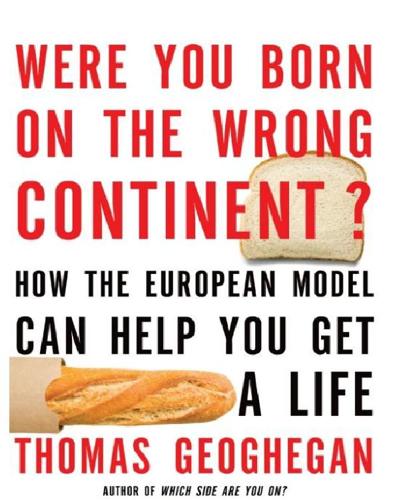
Were You Born on the Wrong Continent?
by
Thomas Geoghegan
Published 20 Sep 2011
But on the whole, everybody gets the kind of social justice they want. Some, like Niall Ferguson, the economic historian, say: Why don’t they just spend their own money, each on what he or she wants, instead of cross-subsidizing each other? In theory, to a Scottish economist, it makes no sense. But all these cross-subsidies ally people to each other in a kind of defense pact. At any rate, over in the U.S., by paying so little in taxes, we starve ourselves of the most creative and rewarding jobs. Yes, we get a lot of support from private money, but at least in Chicago, it’s often a one-shot thing, a new wing for an art museum, but nothing that ever turns into a steady paycheck.
…
Communism, collapse of author’s planned 1993 trip to Moscow to study post-Wall Berlin commuting and suburban sprawl The Competitive Advantage of Nations (Porter) consumption and consumer choice “hedonistic” ethic and hours worked and leisure “producer” wants and “consumer” wants public goods/private goods public spending/consumer spending levels U.S. Corneo, Giacomo The Corrosion of Character: The Personal Consequences of Work in the New Capitalism (Sennett) Craig, Gordon cross-subsidies currency and the euro Dark Continent: Europe’s Twentieth Century (Mazower) Darwin, John Davies, Norman The Decline and Fall of the Roman Empire (Gibbon) Democrats, U.S. Denmark children in poverty elderly poor GDP per capita hours worked jobs/employment percent of adults holding an associate degree percent of adults self-employed purchasing power ratios/disparities unemployment rates for college graduates Despres, Leon Dewey, John Diamond, Jared Disney The Disposable American (Uchitelle) Le Divorce (Johnson) DIY (Berlin think tank) Dutschke, Rudi Earned Income Tax Credit (EITC) East Asia Economic Policy Institute’s State of Working America[Shouldn’t there be more here?
…
Army strikes union resorts/ex-spas unionization rates in the manufacturing sector wage-setting and works councils youth membership The Germans (Craig) Gerschenkron, Alexander Ghilarducci, Teresa Gibbon, Edward Gibbons, James Gini coefficient Giscard d’Estaing, Valery Glass-Steagall Act globalization and German capitalism and labor market flexibility “Globalization and Income Inequality” (Harjes) “Glühwein Festival” (Hamburg) Goethe-Institute Goldman Sachs Gordon, Robert Gramm, Phil Grass, Günter Green Party and European social democracies German coalition government and Agenda 2010 German coalition government and wages/unemployment German coalition government and welfare German coalition government and works councils Germany green technology Greenspan, Alan Guardian (UK) gun ownership Guns, Germs, and Steel: The Fates of Human Societies (Diamond) Gutteres, António Habermas, Jürgen Halliburton Hamburg, Germany Harjes, Thomas health care spending Heine, Heinrich Heinz (retired German labor leader) Hemingway, Ernest Herodotus Hesbaugh, Ted Hitler, Adolf Hitler’s Willing Executioners (Goldhagen) Hobsbawm, Eric Holocaust hours worked and GDP leisure time and standard-of-living How to Lie with Statistics (Huff) Huff, Darrell human capital Humboldt University (Berlin) IBZ Guest House (Berlin) IG Metall (German union) and CDU’s 2009 victory over SDP foreign-born members Frankfurt May Day parade (2001) works councils youth membership “Incentive for Working Hard” (Conference Board, May 2001) income equality/inequality An Inconvenient Truth (film) International Labor Organization (ILO) International Monetary Fund Iraq war Jesuits and papal social democracy jobs/employment artists big business employees cross-subsidies European social democracies and German unemployment Germany high-skill jobs and high-end precision goods manufacturing workforce and percent of adults holding an associate degree public employees (public-sector civil service jobs) self-employment skilled-labor shortage small business employees types of jobs available unemployment rates for college graduates U.S.
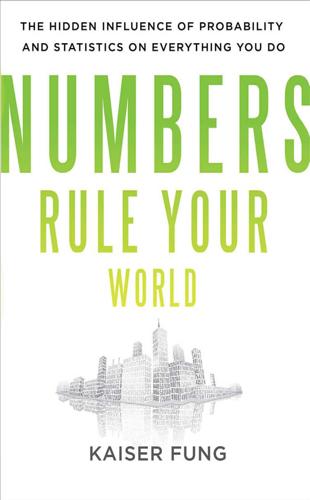
Numbers Rule Your World: The Hidden Influence of Probability and Statistics on Everything You Do
by
Kaiser Fung
Published 25 Jan 2010
. ~###~ The harrowing hurricane seasons of 2004–2005 awakened the disaster insurance industry to an essential reality: under existing risk pools, customers with low-risk inland properties were sure losers, and those with high-risk coastal properties sure winners. This group difference threatened the viability of the insurance arrangements because the cross-subsidies no longer appeared fair. The big insurers reacted by imposing stunning rate hikes, especially on the high-risk group, in effect shutting them out. When the state regulator objected, they relinquished the entire market. Inevitably, the state of Florida assumed the role of insurer of last resort, which did nothing to relieve the low-risk group from subsidizing the coastal property owners.
…
Inevitably, the state of Florida assumed the role of insurer of last resort, which did nothing to relieve the low-risk group from subsidizing the coastal property owners. If the state must play such a role, then it must provide incentives to slow the migration of people and wealth to the vulnerable coastline. If the state cannot or will not stop the unfair cross-subsidies, it must at least respect the low-risk residents by working to ease their burden. When past lessons are not learned, the next disaster is only a matter of time. On the surface, the insurer and the test developer have nothing in common: one assembles a profitable roster of customers, while the other constructs a fair set of test questions.
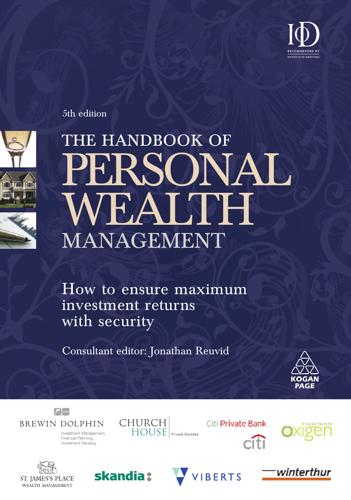
The Handbook of Personal Wealth Management
by
Reuvid, Jonathan.
Published 30 Oct 2011
The life expectancy will be an ‘average’ term of years based on the individual’s age at the start of the annuity. Some individuals will live longer than anticipated but this potential ‘downside’ is usually offset by those annuitants who die earlier than anticipated. This pooling of mortality risk provides a valuable cross-subsidy to those annuitants who live longer than expected, and the risk of outliving capital is effectively transferred from the individual to the provider of the annuity. The purchase of a standard annuity is therefore still the best way to provide certainty of income. However, those individuals with a substantial accumulated pension fund at retirement are often reluctant to write out the necessary cheque to secure the benefits.
…
Investment choice will be critical to the success or otherwise of income drawdown in all its forms, and there are conflicting requirements between the need for growth and security. Balancing these requirements is not easy but is essential to the success of the plan. You are on your own in income drawdown. The mortality cross-subsidy available under an annuity does not exist and investment performance must therefore be higher merely to achieve an equivalent income. If this enhanced investment return (sometimes called the ‘critical yield’) is not achieved, the pension pot will be depleted to the point where it can no longer support the required level of income.
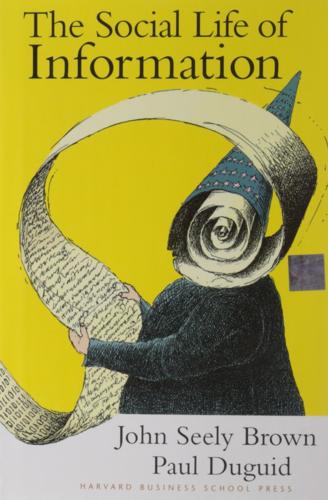
Social Life of Information
by
John Seely Brown
and
Paul Duguid
Published 2 Feb 2000
The risk of taking an oddball but possibly insightful course as part of a degree is small if the value of the overall degree itself is well supported. The risk is far higher if the value of that course has to stand on its own, and not hide itself in the broader omnibus package. There is, in effect, a warranting cross-subsidy as well as a financial cross-subsidy between courses. For information technology to lead to such micromanaging would be a paradoxical and unfortunate result. An extraordinary amount of the creative outburst that has generated this technology has come from people who used the slack in a university to explore new avenues.
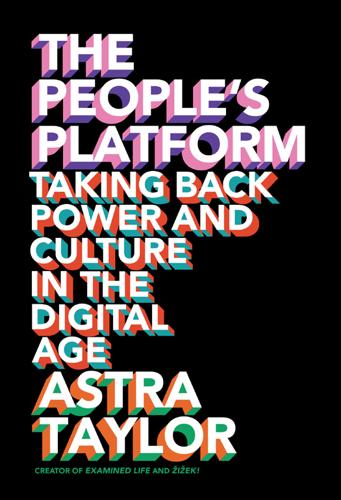
The People's Platform: Taking Back Power and Culture in the Digital Age
by
Astra Taylor
Published 4 Mar 2014
The Internet, by unbundling the different functions of the newspaper and allowing readers to go direct, has certainly made things more efficient—we can now download as many crossword puzzles as we desire, go to Craigslist to find an apartment, and visit the local blog or the foreign news aggregator to read about what’s happening in the world. But it has eliminated the cross-subsidies that kept journalism afloat and, by doing so, exposed a form of market failure. Stephen Janis, a reporter who has made the move from print to the Web, was one of the victims of the newspaper industry’s collapse, losing his job at the Baltimore Examiner when it folded in 2009. While the layoffs have been painful, Janis believes the shakedown of the newspaper industry will be a healthy thing overall, challenging journalists to become more relevant.
…
This kind of corporate saturation has long been the dream of free market acolytes, including tech commenter George Gilder, whose 1994 book Life After Television featured full-color ads from FedEx every few pages. At the time Gilder’s book seemed like a crass gimmick by a highly ideological eccentric; today it looks prophetic. The challenge of supporting uncompromising work is growing greater, for the unbundling of digital media means the era of cross-subsidies, whereby profits from popular wares are used to support more daring endeavors, is coming to an end. The classic example is newspapers, which people bought for the classifieds or comics—these readers translated into higher advertising revenue, which helped finance foreign desks. The days for those kinds of arrangements are numbered, as Yahoo!’
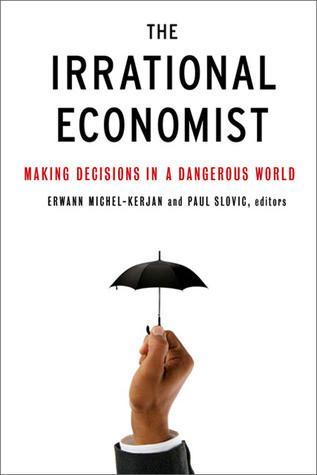
The Irrational Economist: Making Decisions in a Dangerous World
by
Erwann Michel-Kerjan
and
Paul Slovic
Published 5 Jan 2010
As compared to open-ended relief (i.e., implicit insurance), explicit federal disaster insurance or reinsurance could foster appropriate incentives for loss prevention through the assessment of risk-based premiums. The collection of premiums would also provide an important source of funds for compensating victims in the aftermath of disasters, and truly risk-based and actuarially appropriate premiums would reduce or eliminate existing cross-subsidies. President Franklin Roosevelt introduced federal crop insurance in the late 1930s, and federal lawmakers enacted the National Flood Insurance Program in 1968. For a long time, however, both of these programs remained limited in scope and highly subsidized. Even today, as subsidies for federal flood insurance have been reduced, both programs continue to be dwarfed in magnitude by general disaster relief.
…
CONCLUSION: REFRAMING THE DISCUSSION AS A PREREQUISITE FOR REFORM It is no secret that the current (and long-standing) federal approach to financing disaster losses is far from perfect. Since disaster risk is spread unevenly across the country, financing federal relief out of general revenues involves large cross-subsidies, from low-risk to high-risk areas. Many critics claim, moreover, that generous federal relief creates a large “moral hazard” problem, ensuring greater losses over the long term by encouraging building in hazard-prone areas and generally reducing incentives for investment in preventive measures.

Zucked: Waking Up to the Facebook Catastrophe
by
Roger McNamee
Published 1 Jan 2019
The use of proprietary consumer data to identify, develop, and sell products in direct competition with bestsellers on the site represents an abuse of power that would have appalled regulators prior to 1981. Amazon’s ever-expanding distribution business might have run afoul of the same concerns. The horizontal integration into perishables like food would have been problematic due to cross subsidies. Amazon can use its cloud services business to monitor the growth of potential competitors, though there is little evidence that Amazon has acted on this intelligence the way it has leveraged data about bestselling products in its marketplace. Google’s business strategy is a perfect example of how the Chicago School differs from the traditional approach to antitrust.
…
I would also require platforms to be transparent to users, advertisers, and regulators. In terms of economic policy, I want to set limits on the markets in which monopoly-class players like Facebook, Google, and Amazon can operate. The economy would benefit from breaking them up. A first step would be to prevent acquisitions, as well as cross subsidies and data sharing among products within each platform. I favor regulation and believe it can address a portion of the threat posed by Google and Amazon. Unfortunately, relative to Facebook, there is no preexisting model of regulation to address the heart of the problem, which relates to the platform’s design and business model.
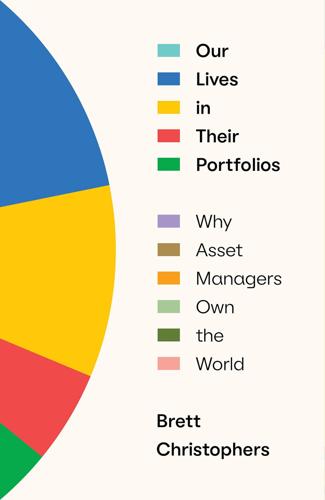
Our Lives in Their Portfolios: Why Asset Managers Own the World
by
Brett Chistophers
Published 25 Apr 2023
Concerned to isolate the respective risk and return profiles of different network elements, investors sought out ‘individual revenue and profitability streams for particular infrastructural developments, within tight definitions of accounting that minimise[d] social or geographical cross-subsidies’.10 Each local, unbundled system element – an electricity distribution network here, a toll road or housing complex there – was effectively posited as a unique set of ‘investment qualities’.11 But, of course, not all such discrete, local investment propositions would prove attractive to private capital. Without the ‘social or geographical cross-subsidies’ mentioned above, investors could not see how some assets, in some places, could be made to pay. More fundamentally still, the spatial fixity that is characteristic of all the physical systems we are concerned with in this book – be they houses or farmland or schools – is itself a risk from the investor’s perspective, even if an asset happens to look ‘investible’ at a particular moment in time.
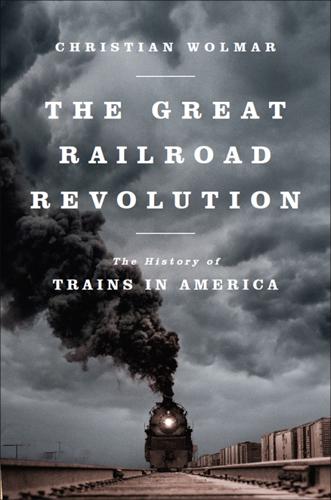
The Great Railroad Revolution
by
Christian Wolmar
Published 9 Jun 2014
Any excess earnings from the most profitable railroads would go into a pool that would be shared between those lines that were not managing to reach the 6 percent threshold. The idea was classic railroad economics: the weak would be supported by the strong, this cross-subsidy ensuring the retention of a much larger network than would be the case if market forces alone were allowed to prevail. Given the near impossibility of trying to allocate costs of running a railroad system accurately in such a complex industry and the desire of railroad managers to retain as large a network as possible, cross-subsidy has become established practice on most railroad networks across the world. The commission, too, set minimum rates in an effort to prevent uncompetitive price reductions, and this would prove to be greatly troublesome to the rail companies, particularly after the Second World War.
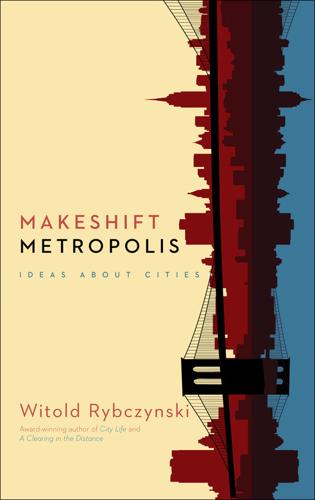
Makeshift Metropolis: Ideas About Cities
by
Witold Rybczynski
Published 9 Nov 2010
To further remove the stigma traditionally associated with “the projects,” the social and market-rate units are indistinguishable.* Combining social and market-rate housing allowed the housing agency to leverage a $35 million federal grant into $200 million of new public housing, as well as half a billion dollars of private development. The financial cross-subsidy is the result of building commercial and retail buildings as well as housing on the same site. The lesson of Capper/Carrollsburg is an implicit critique of earlier public housing policies. No more superblocks, no more high-rise apartment buildings (most of the social housing will be in town houses or low-rise walk-ups), no more islands of concentrated poverty.
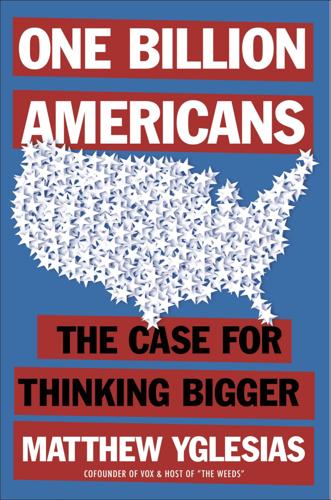
One Billion Americans: The Case for Thinking Bigger
by
Matthew Yglesias
Published 14 Sep 2020
The point is that when we think a service is important, we provide it on equal terms for all. You adjust for the fact that rich people have more money by charging them higher taxes. Precisely because the federal government has a progressive tax structure, the right way to think about providing child benefits to affluent families is that it involves childless rich people paying a cross subsidy to affluent families with two or three children. That’s not the most pressing social obligation in the world by any means, but it’s a perfectly reasonable idea and a good statement of values that raising families is an important form of participating in society. The low-end version of this is considerably more urgent, because the consequence of refusing to give benefits to the neediest families is that millions of children are subject to intense material deprivation despite living in one of the richest societies in all of human history.
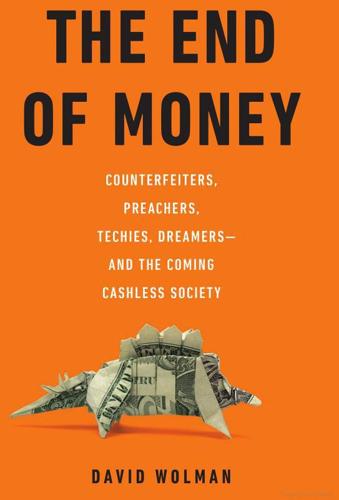
The End of Money: Counterfeiters, Preachers, Techies, Dreamers--And the Coming Cashless Society
by
David Wolman
Published 14 Feb 2012
While cotton-industry lobbyists wield trite nationalism-tinged defenses for banknotes, and thieves and tax evaders rob the rest of us blind, they do so, says Birch, with cash provided to them by us. “We make their business possible, or at least much, much easier. Cash lets criminals maintain anonymity, store value, make payments—everything,” which means we provide them with “a cross subsidy,” he says. “When you kick down a Mexican drug dealers’ door to find $205 million in cash, which happened a few years ago, you have to wonder whose side the Treasury is on.”62 This is not a fringe opinion. The Wall Street Journal reported in July 2010: “Gangsters, drug dealers and money launderers appear to be playing their part in helping shore up the financial stability of the euro zone.
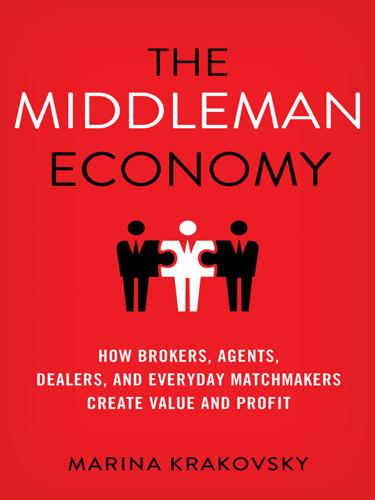
The Middleman Economy: How Brokers, Agents, Dealers, and Everyday Matchmakers Create Value and Profit
by
Marina Krakovsky
Published 14 Sep 2015
The typical way out of this chicken-and-egg problem is for the middleman to subsidize one side, thus getting these initial users to sign up before there’s anything on the other side. Even after a two-sided market takes off, with plenty of users on both sides and therefore the potential to charge both sets of users, middlemen usually continue to offer the service for free to one side while making all their money from charging the other side for access, relying on these cross-subsidies for continued growth and profit. As Chris Anderson put it in Free, “People are making lots of money charging nothing.”38 Some middleman businesses go so far as to pay one set of users to join the network, hoping that a large user base will attract enough paying users on the other side to more than justify the subsidy.
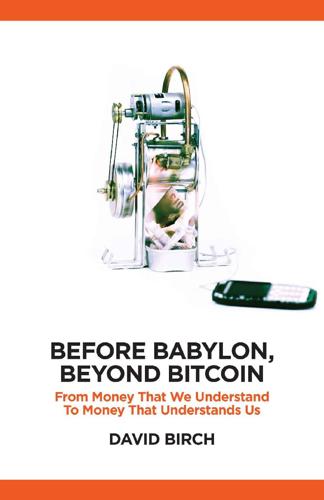
Before Babylon, Beyond Bitcoin: From Money That We Understand to Money That Understands Us (Perspectives)
by
David Birch
Published 14 Jun 2017
Countries that struggle with tax collection could go a long way towards solving their problems by restricting the use of cash. Greece, in particular, could make lemonade out of lemons, using its current capital controls to push the country’s cash culture into new habits (Financial Times 2015). Not only would electronic money cut my tax bill, it would stop the ridiculous cross-subsidy from the lawful to the lawless that plagues our moral fibre. But my point is that if the black economy were turned white, UK GDP would grow by 20 per cent or so. And if you think I’m joking, let me mention that there is work already underway to look at estimating the illegal drugs trade and prostitution as components of GDP, in compliance with EU rules.
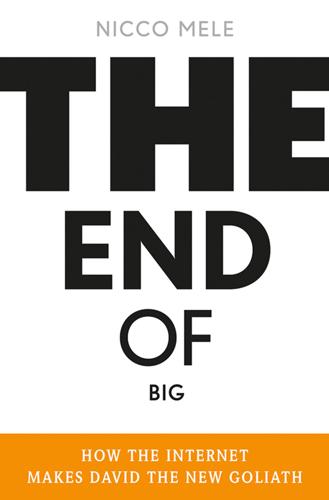
The End of Big: How the Internet Makes David the New Goliath
by
Nicco Mele
Published 14 Apr 2013
In June 2011, an FCC report on the condition of local news described the phenomen this way: During the news media’s most profitable days, in many towns, there was only one newspaper, leaving consumers with limited choice. And, though we may not have thought of it this way, purchasing a paper meant having to buy a bundle of goods, even if readers only wanted certain parts. A cross-subsidy system had developed, in which a consumer who bought the paper for the box scores was helping to pay the salary of the city hall reporter.18 Similarly, William S. Paley (who built CBS) used to tell his reporters that the entertainment division paid for the news. These days, if all you want are the sports scores or the classifieds or the stock prices or even just the horoscope—well, you can get any one of those online without paying for the rest of the newspaper.
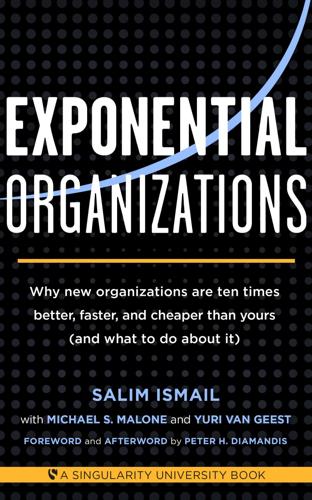
Exponential Organizations: Why New Organizations Are Ten Times Better, Faster, and Cheaper Than Yours (And What to Do About It)
by
Salim Ismail
and
Yuri van Geest
Published 17 Oct 2014
In his 2005 book, Free: The Future of a Radical Price, Chris Anderson built on the lower cost positioning of the disruptor, noting that pretty much all business models, and certainly those that are information-based, will soon be offered to consumers for free. The popular “freemium” model is just such a case: many websites offer a basic level of service at no cost, while also enabling users to pay a fee to upgrade to more storage, statistics or extra features. Advertising, cross-subsidies and subscription business models are other ways of layering profit-generating operations on top of what is essentially free baseline information. Kevin Kelly expanded further on this idea in a seminal post entitled “Better than Free,” which appeared on his Technium blog in 2008. In digital networks anything can be copied and is thus “abundant.”
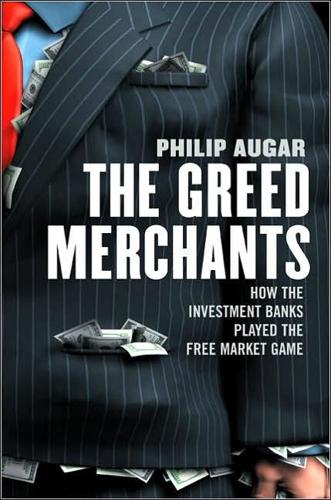
The Greed Merchants: How the Investment Banks Exploited the System
by
Philip Augar
Published 20 Apr 2005
They would be in the deal because they liked it, because they thought it would be good for their clients, and everything would be open and above board. The investment bank’s in-house broker would not be involved in distribution of the deal. The Segregated Model Separating the functions in this way would minimize the cross-subsidies that exist at present and increase the transparency of prices and profits. Brokers would have to make their money from commission. They would need to sharpen up their services to investors, pay their staff less and accept lower profits. More money would stick with the end investor and portfolio performance might improve if everyone had an equal opportunity to exploit market inefficiencies.
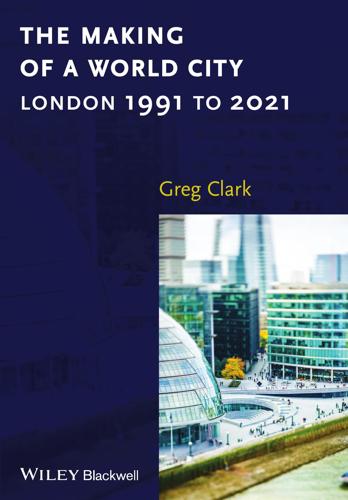
The Making of a World City: London 1991 to 2021
by
Greg Clark
Published 31 Dec 2014
Middle-income workers are also prominent in shared ownership schemes, where the customer profile continues to shift towards more affluent purchasers. Although the lowcost home ownership (LCHO) programmes initiated in the 1980s have produced only modest results in London, they remain capable of generating cross-subsidy in the capital. Over the last decade, new London LCHO supply, mainly via housing associations, has averaged around 5000 per year, with the majority of applicants from the private rented sector (ibid.). Such schemes are now rarely accessed by lower-income residents who, while supported by housing associations, are encountering significantly greater rental burdens.
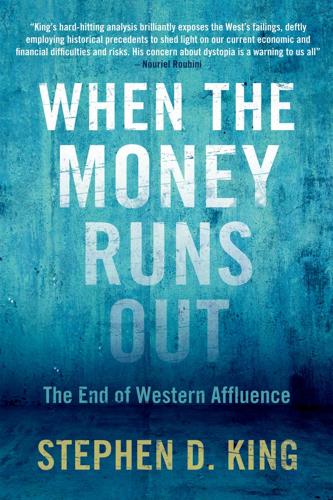
When the Money Runs Out: The End of Western Affluence
by
Stephen D. King
Published 17 Jun 2013
Riskier ventures, meanwhile, had the support of banks' legions of savers who, for the most part, hoped to earn decent returns safe in the ‘knowledge’ that bank failures were a thing of the past. After all, given that policy-makers had mastered the economic cycle, what could possibly go wrong? Banks were thus faced with a series of inconsistent objectives and, in the attempt to meet them all, ended up creating a web of cross-subsidies that hid the true cost of banking services in some areas thanks to excessive risk-taking in other areas. Untangling this labyrinth won't be easy. Nor will it be necessarily be popular. But it may be the only way to restore confidence in the financial system. The first step is to prevent banks from pursuing short-run profit at the expense of long-run stability.

The Weightless World: Strategies for Managing the Digital Economy
by
Diane Coyle
Published 29 Oct 1998
It is the regions in longest receipt of subsidies that trail furthest behind the national average. Italy’s mezzogiorno, despite decades of funding from both the EU and the national government, still has GDP per capita less than three-fifths of the north’s. Extremadura in Spain does little better despite subsidies almost as extensive. The US federal structure involves some cross-subsidy of poor states by rich ones, but not as much. With 3 per cent of the US population willing to move state each year, economic disparities between states persist but are smaller than between European regions. Switch to a pattern of city government rather than regional, and the fruitless subsidies would become a thing of the past.
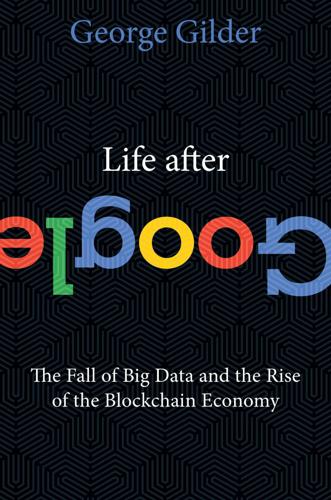
Life After Google: The Fall of Big Data and the Rise of the Blockchain Economy
by
George Gilder
Published 16 Jul 2018
Focusing on stopping progress, barring new power plants, dismantling chemical facilities, mobilizing against Israel, and other reactionary pursuits, Ivy institutions are pursuing the fancies of a declining intellectual and business elite, full of chemophobic nags and luddite lame-ducks quacking away on their miasmic pools of old money as the world whirls past them. In the autumn of 2013, just as the chief environmental ministers of Germany and Spain confessed the near-total failure of their once-pioneering programs of cross subsidies, feed-in tariffs, and punitive taxes to promote “alternative energy,” Harvard’s privileged student body jumped on board. They voted by an 80 percent majority for a resolution to cleanse the university’s $500 billion endowment of all investments in companies involved with extraction of carbon-based fossil fuels.

The Railways: Nation, Network and People
by
Simon Bradley
Published 23 Sep 2015
Local trains and commuter services were now acknowledged to show wider social and economic benefits and underwritten accordingly. In the same spirit, the 1968 Act also introduced the concept of subsidies for rail freight in the form of grants to companies wanting to invest in sidings and handling equipment, although these have not endured. In those sectors of the passenger business that are meant to show a profit, cross-subsidies remain inevitable, as a little thought will show. The journey of the passenger on a nine-tenths-empty Sunday evening train is effectively underwritten by the dozens who will cram into the same carriage the following Monday morning. Even at their simplest, railway economics remain quite complicated.
…
L. 114, 180 On Liberty (Mill) 109 On Railway and Other Injuries of the Nervous System (Erichsen) 160 Ongar branch 549 open carriages 56, 57, 59–60, 61, 64, 65 Operation London Bridge 287 Orley Farm (Trollope) 77 Ottley, George 538 Ouida 127 Our Iron Roads (Williams) 38, 196, 514 Our Mutual Friend (Dickens) 15, 151 Oxenhope 472 Oxford 19, 95–6, 379, 413, 468, 469, 508 Oxford Ragwort 379 Oxford, Worcester & Wolverhampton Railway 44, 463 P Pacers 232–6, 239, 259, 549 Paddington 17 1999 disaster 289 bookstall 127 destination board 493 goods depot 443 graffiti 327, 327 hotel 478 latrines 206 loudspeakers 493 mixed-gauge track 272 nameboards 492, 540 prizefight excursions 92 The Railway Station 31 sleeper trains 249 telegraph 294 train shed 486–7 trainspotting 520 waiting rooms 469 Padel, Ruth 327 Page, Herbert 160–1 Palin, Michael 539 Pall Mall Gazette 135, 476 Pandrol clips 277 Paragon Anti-Vandal Shelter 455, 456 Paris 488 Parliamentary Select Committee on Railway Accidents 194 Parliamentary trains 61–3, 64–6, 69, 74–5, 95, 165 Pasley, Sir Charles 63, 64, 84 passenger trains 239 Beeching 414 cross-subsidies 424 fares 290, 418, 419–20 Flying Scotsman 239–40 refreshment stops 473, 474–5 see also carriages; classes passengers access to platforms 464–6 conversation 253 footbridges 448–50, 452 footwarmers 41–2 luncheon baskets 48–9, 49 preserved railways 545, 547 reading 35, 118–20, 122–8, 137, 139 seat-marking 103–5, 104 servants 77, 78, 81, 242 subways 450–1 working on trains 131, 132–3 see also accidents; crime; luggage; tickets Peckham 379–80 Peel, Sir Robert 95 Pendleton, John 68 Pendolino trains 236–8, 237, 239 Pendon Parva 542 Penguin Books 130 Pennine Way 281 Penny Illustrated Paper 114, 142, 144, 153, 154, 176 Penrhyn Castle 380 Penzance 249 Perdonnet, Auguste 465 permanent way see railway lines permissive block working 299 Perryman, A.
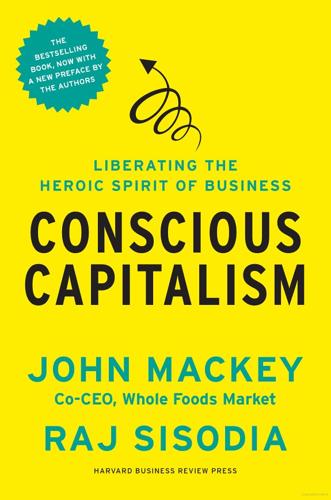
Conscious Capitalism, With a New Preface by the Authors: Liberating the Heroic Spirit of Business
by
John Mackey
,
Rajendra Sisodia
and
Bill George
Published 7 Jan 2014
Companies can use variable pricing to make such products affordable to poor people and still make a profit. Additionally, the companies benefit through public recognition and an enhanced reputation, which enables them to hire and retain additional talented team members. Rather than profit maximization, creative capitalism emphasizes impact maximization. It entails a high degree of cross-subsidy between more prosperous and less prosperous customers. The limitation of creative capitalism, like CSR, is that it is largely an add-on to the traditional business model. It simply suggests that companies develop better go-to-market strategies for low-income markets. The concept only applies to a relatively small subset of industries with cost structures that allow for radically variable pricing.
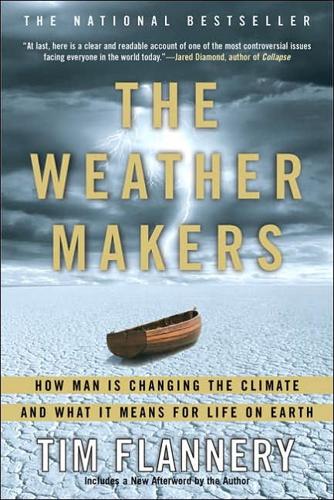
The Weather Makers: How Man Is Changing the Climate and What It Means for Life on Earth
by
Tim Flannery
Published 10 Jan 2001
That includes ever-stricter regulation on the efficiency of goods allowed into the marketplace, strong housing codes that mandate a limit to emissions at the household level, legislation that encourages the retrofitting of devices that reduce household emissions, and designing transport systems with overall energy efficiency in mind. It is also important that cross-subsidies be removed—big energy users like smelters will never feel the full impact of price signals (and thus will never get serious about efficiency) while we householders are footing the bill for much of their power use. Initiatives to encourage the use of renewable energy are equally important, and could include telling energy providers that they must source a percentage of their energy from renewables (called mandated renewable energy target schemes); rebates for the purchase of photovoltaic cells; assistance with the location of electricity inter-connectors that favour renewable sources; and legislation that facilitates the introduction of renewables such as wind.
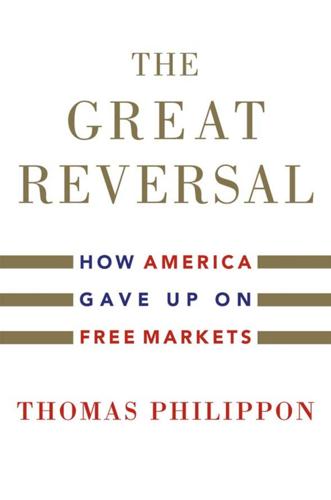
The Great Reversal: How America Gave Up on Free Markets
by
Thomas Philippon
Published 29 Oct 2019
Price discrimination is efficient in the sense that it maximizes the total surplus of all transactions. When the firm has all the information, it can propose a price or a contract that is specific to each client and acceptable to each client. With efficient discrimination, as long as the transaction is economically viable, it will take place. Without discrimination, there are cross-subsidies, and some people can be priced out. The concern, however, is that a monopoly with full information can extract all the surplus. This is the fear expressed by Omarova. The key point here is that free entry becomes more important when firms increase price discrimination. Platforms use a variety of tools to limit competition, and sometimes that involves preventing price discrimination.
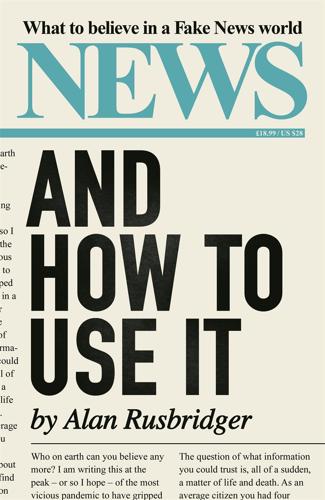
News and How to Use It: What to Believe in a Fake News World
by
Alan Rusbridger
Published 26 Nov 2020
The Intercept could not have started – and may not survive – without Pierre Omidyar, the founder of eBay. Jeff Bezos, the richest person in the world after giving life to Amazon, came to the rescue of the Washington Post, as have assorted French businessmen to Le Monde (SEE: PROPRIETORS). There may be forms of cross-subsidy within organisations. The Guardian would have been a sickly animal at various points in its history without being supported by, first, the Manchester Evening News and then a secondhand car magazine/website, Auto Trader. The Times has occasionally relied on subventions from profitable parts of the Murdoch empire, including the red-top tabloid.

The City on the Thames
by
Simon Jenkins
Published 31 Aug 2020
A central weakness of London’s local government was that, unlike the provincial municipalities, it lacked any single authority with powers to redistribute taxes from rich to poor areas of the city. As a result, the vestry of St George’s-in-the-East had to levy a crippling property rate of 3/9d in the pound, while wealthy St George’s Hanover Square levied a mere 6d. Without cross-subsidy, serious efforts to relieve poverty were impossible. The liberal leader of Birmingham, Joseph Chamberlain, thundered that cities should accept ‘new conceptions of public duty, new developments of social enterprise, new estimates of the natural obligations of the community to one another’. Birmingham was pointing an accusing finger at London.
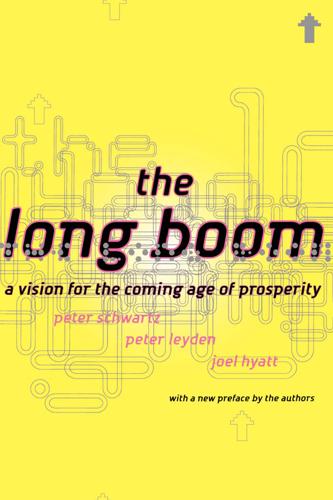
The Long Boom: A Vision for the Coming Age of Prosperity
by
Peter Schwartz
,
Peter Leyden
and
Joel Hyatt
Published 18 Oct 2000
ThosE RElATioNships hfilpsd dEEpEN ThE SENSE of CONCERN ihAT ktpT ThE EUROPEANS MOTIVATEd. ThE fiRST STEP ThE EUROPEANS TOOk WAS TO INITIATE TEchNOfoqy ANd TtlECOMMU' NicATfoNs dEAb AAT WERE hiqhly AdvANTAqeous TO These dEvelopiNq REqions. As ThE NEW qbbAl TElECOMMUNICATIONS INFRASTRUCTURE WAS buill, The EUROPEANS bfiokeREd qENEROus CROSS-subsidiES, wiTh The AffluENT pAyiwq MORE so The POOR could pAy lirrlE TO NOThinq. This WAS A foswuk ihAT hAd woRkcd IN The PREVIOUS CCNTURy IN buildlNq TElcphoNE ANd elECTRiCITy INffiASTRUCTURES ThAT EVENTUAlly CONNECTEd EVERyONE. ThiS TWENTY'fiRST CENTURy EffORT MET Wllh ThE SAME SUCCESS, STARTINq WJTh T|« qiA^fT SATElliTE PROJECTS like TelEdesic.
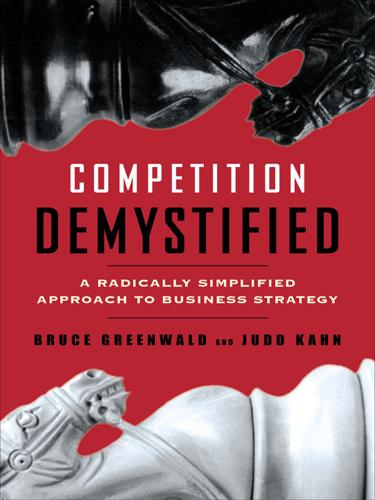
Competition Demystified
by
Bruce C. Greenwald
Published 31 Aug 2016
It established the Civil Aeronautics Board (CAB), with authority over route entry and exit, fares, mergers and acquisitions, interfirm agreements, and airmail rates. This regulatory regime established order in the industry, so much so that from 1938 through 1978, no new trunk line was created. The routes were distributed to provide cross-subsidies between dense, profitable long-haul flights and shorter, more lightly traveled and money-losing routes. The carriers could not compete on price, and they were allowed to raise fares when their own costs increased. For a while, the trunk carriers flourished. Even though the CAB encouraged local carriers to enter the market, the four largest trunk carriers retained 70 percent of the market into the 1960s.
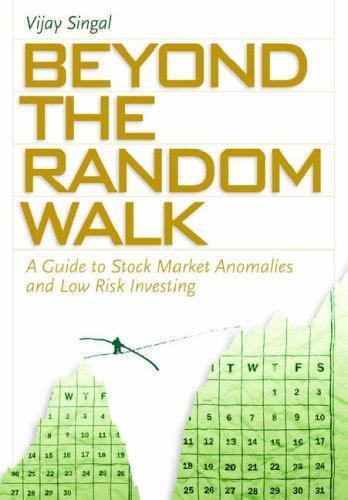
Beyond the Random Walk: A Guide to Stock Market Anomalies and Low Risk Investing
by
Vijay Singal
Published 15 Jun 2004
Trading strategies designed to capture abnormal performance do not always perform satisfactorily. The primary explanation for the overperformance of companies engaged in a spin-off seems to be related to corporate focus. When unrelated businesses are spun off, the focus of the management is sharper and the incidence of cross subsidies to keep poorly performing divisions alive is much reduced. There is an improvement in operating performance, and the empirical evidence suggests that focus-increasing spin-offs are the only ones that outperform their peers. The non-focus-increasing spin-offs do not outperform their peers. Another explanation for the abnormal performance is a reduction in asymmetry of information between the management and investors.

Fire and Steam: A New History of the Railways in Britain
by
Christian Wolmar
Published 1 Mar 2009
See, for example, Simon Garfield, The Last Journey of William Huskisson, Faber, 2002, p. 20. 6 Nicholas Faith, The World the Railways Made, Bodley Head, 1990, p. 15. 7 The three mainland Japanese railways are profitable, though they had huge debt write-offs at privatization in the 1980s, and US freight companies do very well thanks to the sheer distance involved in crossing the country. Freight in India and Russia is profitable too, but otherwise, while individual services may make a profit, the need for cross-subsidy means that throughout the world the vast majority of railway networks are loss-making. 8 Quoted in Ferneyhough, Liverpool & Manchester Railway, p. 93. 9 As the Bodmin & Wadebridge had been built to standard gauge, it was not directly connected to the rest of the network until 1892 when the Great Western’s broad gauge was finally abandoned (as explained in Chapter 9). 10 The Quarterly Review, 1833, quoted in Frank Ferneyhough, The History of Railways in Britain, Osprey Publishing, 1975, p. 73. 11 Many of the arches are now being converted into upmarket restaurants and fashionable nightclubs.
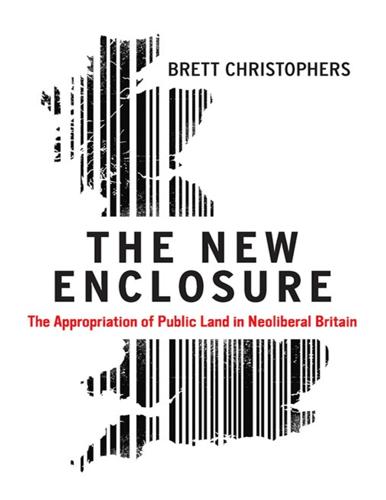
The New Enclosure: The Appropriation of Public Land in Neoliberal Britain
by
Brett Christophers
Published 6 Nov 2018
They materialize because, in short, land and property prices have been rising, and in this bounteous context, developers – the main buyers of MoD land – have been willing to share some of their rich spoils in the form of relatively uncostly gestures of good will. ‘Attempts to resolve [the conflict between price and community benefits] within individual disposals have been tentative, muddled, or dependent on cross-subsidy from a buoyant private property market’, Dobson wrote; ‘most approaches to community benefit within the UK have depended on rising land and property values to generate sufficient surplus to underwrite activities such as the preservation of heritage or the provision of community facilities’. Rather than a policy success, then, community benefits have been incidental gains – scraps thrown from the table of outsized private-sector ‘profits available from residential or commercial sales’.

Be Your Own Financial Adviser: The Comprehensive Guide to Wealth and Financial Planning
by
Jonquil Lowe
Published 14 Jul 2010
Earlier (p. 232), this chapter explained how annuities are a combination of an investment and insurance against living too long. Income drawdown is purely about investment and there is no insurance element. This means M08_LOWE7798_01_SE_C08.indd 241 05/03/2010 09:50 242 Part 3 n Building and managing your wealth you get no cross-subsidy from people who die younger than you and you are reliant only on your own pension fund for your income. This means your investments have to work harder than they would have done within the framework of an annuity if they are to provide a comparable income. This extra return you need because you have not bought an annuity is called ‘mortality drag’.
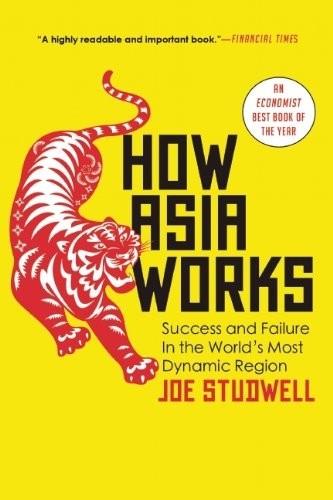
How Asia Works
by
Joe Studwell
Published 1 Jul 2013
They account for the bulk of China’s exports – private firms’ net exports (exports minus imports) went from zero in 2000 to USD200 billion in 201046 – but they are not rewarded by the state for this export performance. In most consumer goods businesses private firms are more open to multinational competition than were their Japanese and Korean cousins at a similar stage of development. They do not enjoy cross-subsidies from other protected non-consumer businesses, such as Hyundai Motor Company had from the chaebol’s cash-generative shipbuilding subsidiary; in China such non-consumer businesses are in state hands. Private firms enjoy fewer orders for state procurement than their public sector rivals, a big disadvantage in an era when the state is investing so heavily.
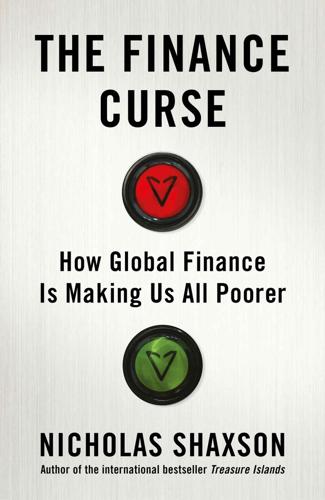
The Finance Curse: How Global Finance Is Making Us All Poorer
by
Nicholas Shaxson
Published 10 Oct 2018
Yet the cutbacks have hit the poorest councils hardest: for instance, Knowsley and Liverpool, two of the most deprived parts of the country, saw council spending cut by around £400 per inhabitant between 2000 and 2016, while Wokingham and Elmbridge, two of the wealthiest, had theirs cut by £2.19 and £8.14 respectively.13 Adam Leaver, professor of accounting and society at Sheffield University, sums up the geographical impact of the boom years and the crisis: ‘This quiet cross-subsidy from north and west to south-east has been running unnoticed for a long time,’ resulting in ‘a kind of regional moral hazard: the metropolitanisation of gains, and the nationalisation of losses.’ One major route for this flow is the stock market. Many people believe a stock market’s main function is to channel investors’ money to companies – to invest in productive things – but the shareholder value revolution that I described in the last chapter has turned this on its head, as companies increasingly prioritise channelling their profits not into investment but into buying back their own shares – thereby boosting the share price and with it shareholders’ wealth and company executives’ stock options – or buying other firms in monopolising mergers and acquisitions.
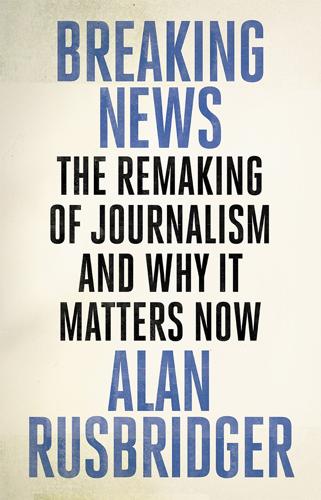
Breaking News: The Remaking of Journalism and Why It Matters Now
by
Alan Rusbridger
Published 14 Oct 2018
What Money Can’t Buy; see Bibliography 40. The term ‘subsidariat’ was coined by Paul Dacre in a 2008 speech to the Society of Editors conference in Bristol: ‘those media outlets who cannot connect with enough readers to be commercially viable, and whose views and journalism are only sustained by huge cross-subsidy from profitable parts of their owners’ empires or by tax payers’ money . . . in most cases – [subsidy] ultimately perverts everything it touches. In the media, it produces a distorting prism, actually incentivising its recipients to operate in splendid isolationism, far removed from the real world that the great majority of readers and listeners have to live in.’ 41.

Order Without Design: How Markets Shape Cities
by
Alain Bertaud
Published 9 Nov 2018
Figure 6.21 Household income distribution in New York, 2012, showing income ranges that benefit from inclusionary zoning (red bars) and those that generate subsidies (blue bars). Source: Derived from US Census American Community Survey, Integrated Public Use Microdata Series, Furman Center, New York University. The above numbers demonstrate that a limited number of households can be a source of the cross-subsidy, one of the main flaws of inclusionary zoning policy. In New York, the annual flow of affordable housing intended to benefit 29 percent of the population depends on the number of housing units being built each year for the 9 percent of the wealthier households. Every eight newly built market units generate only two units of affordable housing.
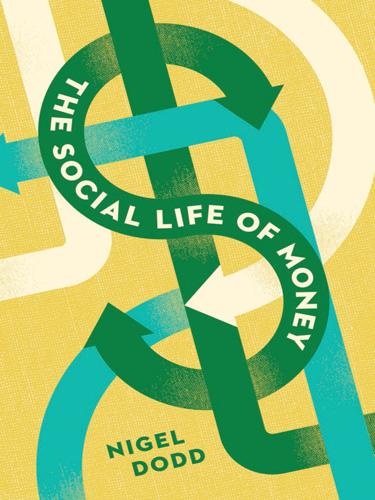
The Social Life of Money
by
Nigel Dodd
Published 14 May 2014
Take, for example, the relationship between “surplus” and “deficit” nations within the Eurozone. Since the crisis began, this relationship has been framed overwhelmingly in terms of the failure of the latter nations to “live within their means.” Not only have these nations borrowed excessively, but also their continuing membership in the Eurozone presents a danger for surplus nations of cross-subsidy: a “transfer union” in which money flows from strong to weak states, lending moral validity to the deficit nations’ prolonged financial profligacy, their lack of fiscal self-control, and their poor work ethic. “Transfer union” became part of the Eurozone’s lexicon only in the teeth of its crisis.37 Jörg Krämer, chief economist at Commerzbank, claimed that the Eurozone “has moved away from a monetary union and towards a transfer union” (New York Times, May 11, 2010), and Columbia University economics professor Jagdish Bhagwati remarked in an interview that monetary union will turn into a transfer union “if the weak countries have problems.”38 The notion of a transfer union is generally used in such instances to describe redistributive functions that (so critics argue) were never intended for the euro.39 This is the language of restricted economy.
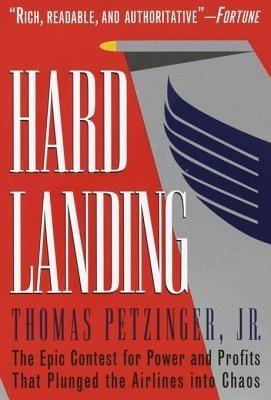
Hard Landing
by
Thomas Petzinger
and
Thomas Petzinger Jr.
Published 1 Jan 1995
The majors were not, as a matter of fact, using their transcontinental routes to subsidize their short-haul routes—at least not enough to account for their 70 percent discounts. The majors were offering low fares against People Express because they had computers that enabled them to offer rock-bottom prices to discretionary passengers and still keep as many seats as necessary in store for higher-paying passengers. That was the cross-subsidy that was killing People Express. After reaching Denver, Burr approached not only the management of Frontier but the unions as well. Although Burr practically had to hold his nose at the mere mention of the word “union,” he stifled his prejudice and earnestly told the union leaders that the employees of Frontier were much better off casting their lot with him than with his union-busting former partner Frank Lorenzo.
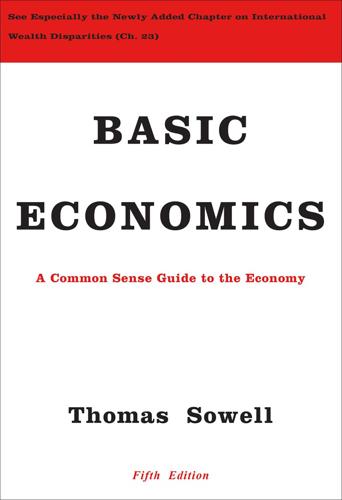
Basic Economics
by
Thomas Sowell
Published 1 Jan 2000
Putting aside for the moment the question whether most of “the poor” are a permanent class or simply people transiently in low income brackets (including young people living with middle-class or affluent parents), and even accepting for the sake of argument that it is somehow imperative that “the poor” use the particular goods and services in question, subsidizing everybody who uses those goods and services in order to help a fraction of the population seems less efficient than directly helping “the poor” with money or vouchers and letting the others pay their own way. The same principle applies when considering cross-subsidies provided, not by the taxpayers, but by excessive charges on some people (such as toll bridge users) to subsidize others (such as ferry boat riders). The weakness of the rationale based on subsidizing “the poor” is shown also by how often taxpayer subsidies are used to finance things seldom used by “the poor,” such as municipal golf courses or symphony orchestras.
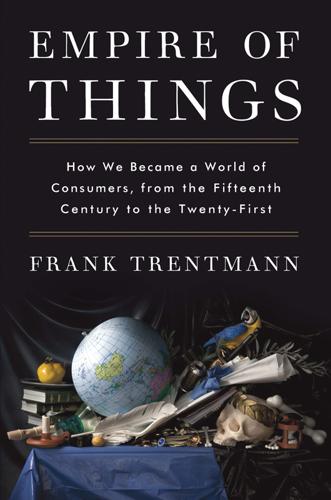
Empire of Things: How We Became a World of Consumers, From the Fifteenth Century to the Twenty-First
by
Frank Trentmann
Published 1 Dec 2015
The failure of British coffee offers a history lesson that is easily forgotten: some new tastes were acquired thanks to mercantilist empire; others were spoiled by it. The Chinese state might not have blocked trade, but it did not promote it either. Wealth created in the Yangzi Delta was siphoned off and transferred to the poorer north, a kind of cross-subsidy for the sake of political stability. The British state was no charity bazaar, but it squeezed its people’s wallets to build up trade and colonies as well as to subsidize the elite. And trade spurred demand, as contemporaries appreciated. ‘It is not because an English washerwoman cannot sit down to breakfast without tea and sugar, that the world has been circumnavigated,’ the champion of colonization Edward Gibbon Wakefield noted, ‘but it is because the world has been circumnavigated that an English washerwoman requires tea and sugar for breakfast.’41 The Atlantic empire gave the new textile industries, too, a much bigger outlet than they would have had otherwise.42 The promotion of trade intersected with a domestic culture receptive to experimentation, as was the case in the new cotton and pottery manufactories.
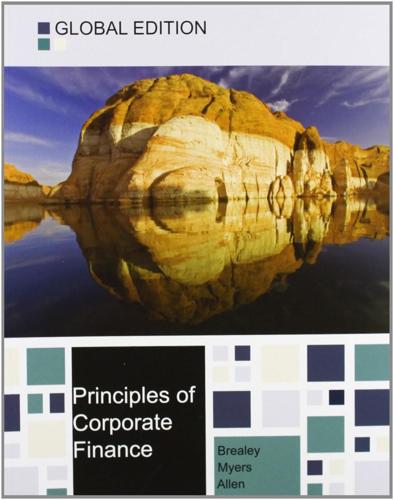
Principles of Corporate Finance
by
Richard A. Brealey
,
Stewart C. Myers
and
Franklin Allen
Published 15 Feb 2014
First, since the value of the parts can’t be observed separately, it is harder to set incentives for divisional managers. Second, conglomerates’ internal capital markets are inefficient. It is difficult for management to appreciate investment opportunities in many different industries, and internal capital markets are prone to overinvestment and cross-subsidies. Of course, companies shed assets as well as acquire them. Assets may be divested by spin-offs, carve-outs, or asset sales. In a spin-off the parent firm splits off part of its business into a separate public company and gives its shareholders stock in the company. In a carve-out the parent raises cash by separating off part of its business and selling shares in this business through an IPO.